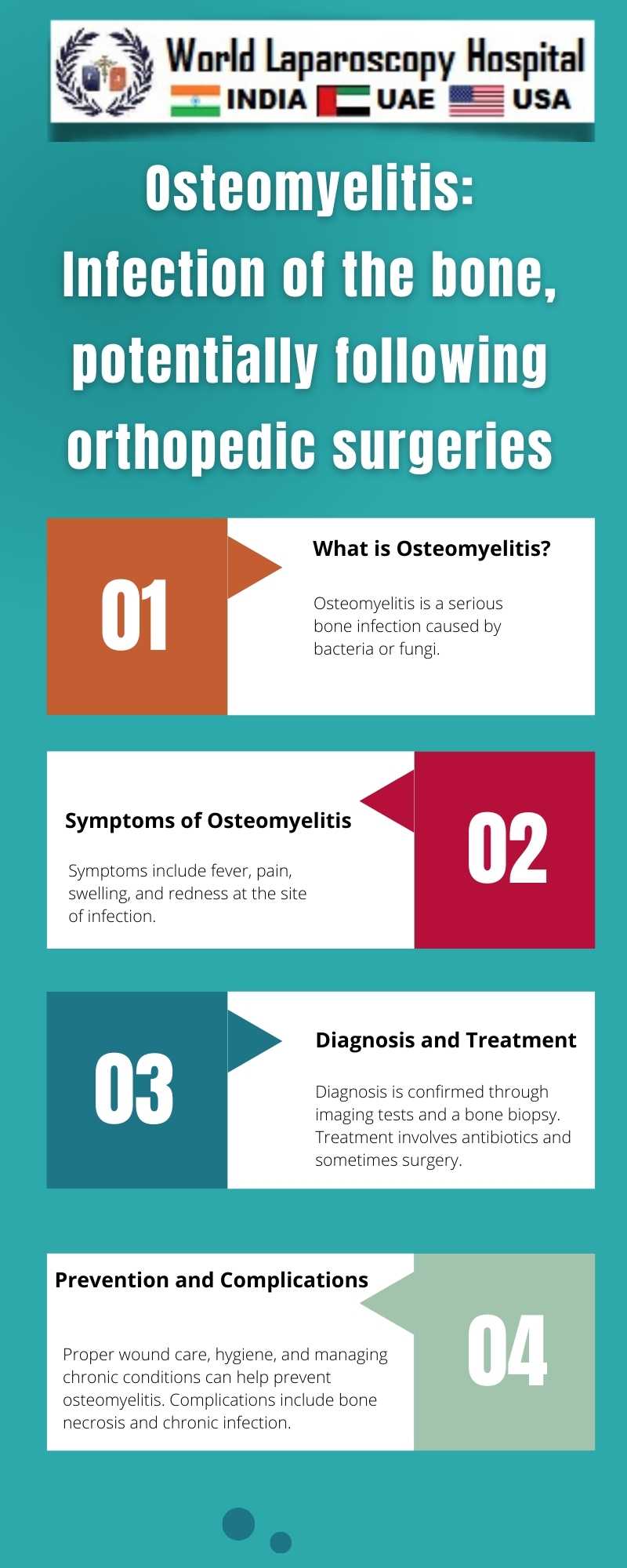Osteomyelitis: Infection of the bone, potentially following orthopedic surgeries
Osteomyelitis: A Potentially Serious Complication Following Orthopedic Surgeries
Orthopedic surgeries are often hailed as modern medical marvels, restoring mobility and alleviating pain for countless individuals. However, amidst the success stories lies a potential complication that can be as debilitating as the initial ailment – osteomyelitis, an infection of the bone.

Understanding Osteomyelitis
Osteomyelitis is a bone infection caused by bacteria or fungi. It can occur as a result of direct contamination during surgery, particularly in orthopedic procedures involving implants or prosthetics. The bacteria can also reach the bone through the bloodstream from other parts of the body.
Symptoms and Diagnosis
Symptoms of osteomyelitis can vary but often include persistent or worsening pain at the site of the surgery, swelling, warmth, and redness. Some patients may also experience fever and chills. Diagnosing osteomyelitis usually involves a combination of physical examination, imaging studies such as X-rays, MRI, or bone scans, and laboratory tests to identify the causative organism.
Treatment Challenges
Treating osteomyelitis can be challenging due to several factors. Firstly, the bone is a relatively avascular tissue, making it difficult for the immune system to reach and combat the infection effectively. Secondly, bacteria can form biofilms on the surface of implants or dead bone tissue, rendering them less susceptible to antibiotics. Lastly, surgical debridement (removal of infected tissue) may be necessary, which can be complex and may require multiple procedures.
Prevention and Management
Prevention of osteomyelitis involves strict adherence to sterile techniques during surgery, appropriate antibiotic prophylaxis, and meticulous post-operative care. In cases where osteomyelitis does occur, a multidisciplinary approach involving orthopedic surgeons, infectious disease specialists, and microbiologists is often necessary for effective management.
Conclusion
While osteomyelitis remains a potential complication of orthopedic surgeries, advances in surgical techniques, antibiotic therapy, and infection control measures have significantly reduced its incidence. Nevertheless, vigilance and prompt management are crucial in minimizing its impact on patients' outcomes.
Orthopedic surgeries are often hailed as modern medical marvels, restoring mobility and alleviating pain for countless individuals. However, amidst the success stories lies a potential complication that can be as debilitating as the initial ailment – osteomyelitis, an infection of the bone.

Understanding Osteomyelitis
Osteomyelitis is a bone infection caused by bacteria or fungi. It can occur as a result of direct contamination during surgery, particularly in orthopedic procedures involving implants or prosthetics. The bacteria can also reach the bone through the bloodstream from other parts of the body.
Symptoms and Diagnosis
Symptoms of osteomyelitis can vary but often include persistent or worsening pain at the site of the surgery, swelling, warmth, and redness. Some patients may also experience fever and chills. Diagnosing osteomyelitis usually involves a combination of physical examination, imaging studies such as X-rays, MRI, or bone scans, and laboratory tests to identify the causative organism.
Treatment Challenges
Treating osteomyelitis can be challenging due to several factors. Firstly, the bone is a relatively avascular tissue, making it difficult for the immune system to reach and combat the infection effectively. Secondly, bacteria can form biofilms on the surface of implants or dead bone tissue, rendering them less susceptible to antibiotics. Lastly, surgical debridement (removal of infected tissue) may be necessary, which can be complex and may require multiple procedures.
Prevention and Management
Prevention of osteomyelitis involves strict adherence to sterile techniques during surgery, appropriate antibiotic prophylaxis, and meticulous post-operative care. In cases where osteomyelitis does occur, a multidisciplinary approach involving orthopedic surgeons, infectious disease specialists, and microbiologists is often necessary for effective management.
Conclusion
While osteomyelitis remains a potential complication of orthopedic surgeries, advances in surgical techniques, antibiotic therapy, and infection control measures have significantly reduced its incidence. Nevertheless, vigilance and prompt management are crucial in minimizing its impact on patients' outcomes.
2 COMMENTS
Dr. Karan Pratap Singh
#1
Feb 24th, 2024 6:58 am
Despite advances, osteomyelitis remains a risk in orthopedic surgeries. Enhanced techniques and infection control have lowered incidence, yet vigilance remains vital. Prompt management is essential for mitigating its impact on patient outcomes.
Dr. Chahat Trehan
#2
Feb 26th, 2024 10:03 am
Osteomyelitis, though a risk in orthopedic surgeries, has seen reduced incidence due to advancements in techniques and infection control. Despite this, vigilance and prompt management remain vital to minimize its impact on patient outcomes.
| Older Post | Home | Newer Post |

